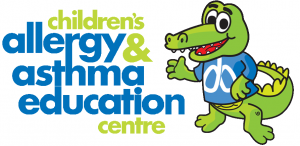 We spoke about peak allergy season and asthma control with Nancy Ross, RN, BN, CAE. Nancy is a Certified Asthma Education Nurse at the Children’s Allergy and Asthma Education Centre in Winnipeg, Manitoba.
We spoke about peak allergy season and asthma control with Nancy Ross, RN, BN, CAE. Nancy is a Certified Asthma Education Nurse at the Children’s Allergy and Asthma Education Centre in Winnipeg, Manitoba.
Q. Why is September known as a peak asthma season?
Nancy: In Canada, September is the peak time of year for hospital and emergency room visits for asthma. One of the main causes [is] viruses. As children return to school, catching a cold becomes more likely.
Fall also brings other asthma triggers like outdoor mold and ragweed pollen. Depending on where you live in Canada, the air quality can also be affected by smoke from burning fields and an increase in traffic pollution. Low use of asthma controller medicine in the summer often means asthma is not well-controlled when fall begins.
Q. Can you outline some of the best steps to take during peak season to help avoid asthma attacks — and to respond to emergencies?
Nancy: Managing asthma is more than just avoiding attacks – it is about having asthma under control all year long. To keep asthma in control, think about what worsens or triggers your asthma and avoid, reduce and manage your triggers.
Most people with asthma use a controller medicine each day that keeps the inflammation under control inside the airways. Taking a controller medicine daily will help to keep asthma in control even when exposed to asthma triggers. Reliever medicines (usually blue in color) are taken to treat the acute symptoms of asthma. These medicines work fast to relax the muscles around the airways. Keep in mind that if a reliever is needed more than 3 times a week, asthma is not controlled.
Q. What can happen if a person’s asthma is not managed in peak season?
Nancy: Colds and other viral infections are common in the fall. If asthma has not been under good control, having a cold can lead to an asthma flare up and possibly a visit to the emergency room or hospital admission.
Q. What about children?
Nancy: Poorly controlled asthma can have a significant impact on a child and family’s quality of life such as poor sleep, inability to concentrate at school, missing school or other activities because of asthma problems and not being able to keep up with friends. Poorly controlled asthma in childhood can lead to more chronic severe asthma and permanent changes in the lungs. Asthma must be managed [at every age].
Q. Describe an Asthma Action Plan. Are they available online?
Nancy: An Asthma Action Plan, completed with your doctor, can help your family decide when and how to adjust the amount of reliever and controller medicine needed. If you follow the plan and respond early, you may prevent more severe problems. Several organizations, including the Lung Association, have Asthma Action Plans online.
Q. What are some asthma management strategies throughout the year, to help stay safe during peak season and beyond?
Nancy: Learn more about asthma. Know what good asthma control looks like and watch for the early warning signs of worsening asthma. When you see these signs, follow your Asthma Action Plan. This often means increasing or starting your controller medicine. Continue to avoid, reduce and manage your asthma triggers. Have a regular check up with the same doctor. Take asthma medicine regularly as directed by your doctor.
Thank you so much for all the information, Nancy. It’s very helpful!
Nancy: Thank you.
The Children’s Allergy & Asthma Education Centre (CAAEC) is a program of the Department of Pediatrics and Child Heath at the Children’s Hospital of Winnipeg and resides within the Thompson Children’s Allergy and Asthma Centre.
For more information and resources about asthma, please visit our Asthma page.
Like what you’re reading? Support Food Allergy Canada!
Tags: asthma, Children's Allergy and Asthma Education Centre, Manitoba, peak asthma season